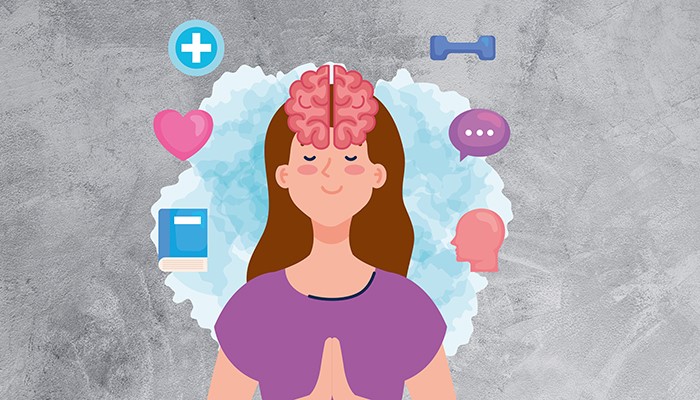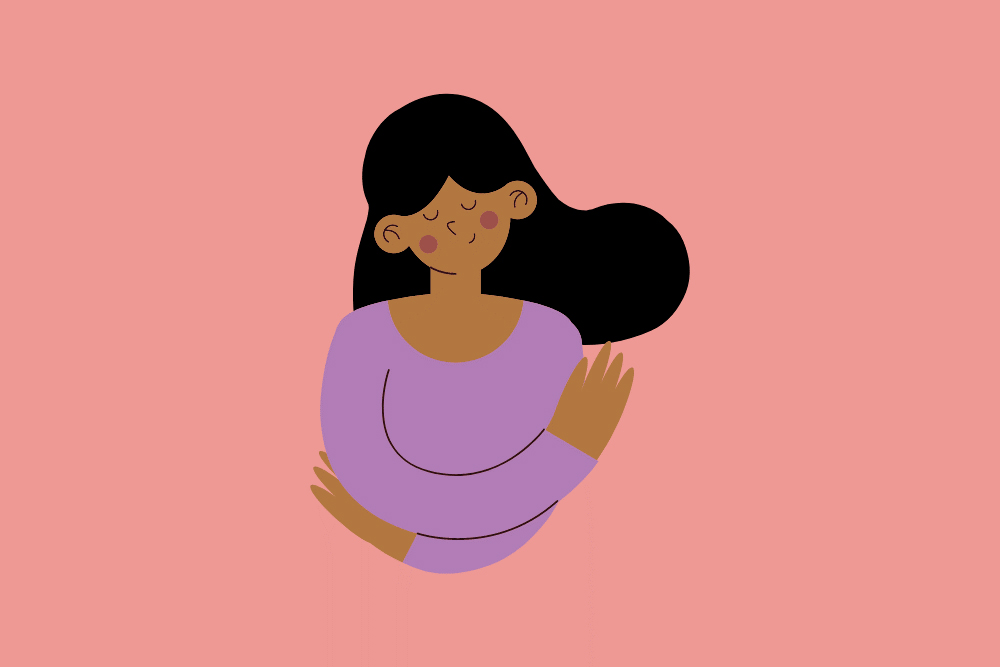
The act of taking care of oneself, according to the OMS, refers to an active and responsible attitude towards quality of life. Therefore, self-care is the set of actions taken to provide mental, physical and emotional health.
Taking care of oneself requires identifying what our needs are (at all levels) and making the best decisions to meet them.
We should not confuse self-care with a selfish act. The actions we take to take care of our image in society can often make us believe that we are taking care of ourselves, however, this is not the case. Extreme dieting or “miracle” treatments are not self-care.
Asking myself what I need, identifying it, and then postponing it for when I have time… does not work. Self-care should be a priority. We are responsible for our wellbeing.
Taking responsibility for our wellbeing implies that we should not leave it in the hands of other people “my partner never has time for me”, of circumstances “I live far away from my friends” or of the remaining time we have left “I’m late and I have to be with my children”. Being decisive is key. We can always find ways to meet our needs. There are no excuses for not being able to take care of ourselves, start now!
Types of self-care
To start taking care of ourselves we must first be clear that self-care is divided into five categories and that each of them deserves attention.
- Emotional self-care: Emotions must be managed. If not, they can become overflowing or we will mismanage them, causing new problems.
Find ways to express your emotions: talk to someone, write a letter or a diary, dance, paint, allow yourself to enjoy an activity, etc. Go to a psychologist, accept our defects, be self-compassionate and work to improve, ask for help….
2. Physical self-care: Take care of our body through sleep care, nutrition, exercise, disease control, etc.
3. Intellectual self-care: any activity that allows the exercise of our mind.
Playing a game (puzzles, jigsaw puzzles, chess…), reading, learning something new, starting a project, podcasts, documentaries, etc.
4. Social self-care: we are social beings and as such, the link and connection with others is essential for our well-being.
Meeting or chatting with friends is just one of the ways. Meet new people, chat with someone interesting, surround yourself with people…
5. Finally, and although not everyone considers it a type of self-care, we talk about spiritual self-care. This includes religion, but goes much further, as it deals with everything that allows us to connect with our values and ourselves. Exercises such as meditation, mindfulness or affirmations are some of the most common ways.
As we have seen, good self-care leads to an improvement in our overall health.
We may think that prioritizing self-care in one area is enough, but often, neglect in one area leads to deterioration in others.
There is an unbreakable relationship between the various areas of self-care. Our health depends on the balance of all of them.
If one falters, it often takes another with it. Let’s look at some examples:
- Have you become ill after suffering a love breakup or after a job change? EMOTIONAL – PHYSICAL
- The pandemic limited us a lot (socially), what was the general state of mind? SOCIAL – EMOTIONAL
- What mood are you in after a sleepless night? PHYSICAL – EMOTIONAL
- How do you feel after overcoming or doing something you didn’t think possible? INTELLECTUAL – EMOTIONAL
- Do you think we age the same if we stay mentally active as if we don’t? INTELLECTUAL – PHYSICAL
- Who has healthier grief? Those who connect with themselves or those who neglect their emotions? SPIRITUAL – EMOTIONAL
Good self-care has multiple health benefits:
- Prevention of illness (physical and mental)
- Improved quality of life
- Improved self-esteem
- Increased problem solving
- Adaptability to the situation
- Increased performance and productivity
- More positive and decisive attitude
- Self-awareness
- Healthier interpersonal relationships
How to work on it?
Taking care of ourselves requires taking care of our needs. Therefore, we must be attentive to them and ask ourselves: What do I need?
Once the question is asked, we must answer honestly. You may be aware about what you need, but it may be difficult to put it into practice. Prioritize, make small changes and see how good you feel.
We each have our own way of taking care of ourselves and therefore it is very personal. What feels good to other people may not feel good to you… And that’s okay! Your self-care should depend on your needs and your particular tastes or interests.
Create a list of things you can do for yourself and come up with one or more ways you can achieve that goal. Start small, sometimes a small change can make a big difference. For example, start a journal, go to bed 20 minutes earlier, have your weekly lunch ready on Sunday, talk to a friend on the phone after work, take a walk, learn about that interesting topic, etc.
Self-care should be applied on a daily basis, but you can also dedicate a self-care day to yourself. A whole day for you and all your needs: read that book you never start, take that bath you never have time for, try that recipe you crave, spend the day with those friends you never see anymore, enjoy your solitude…. The possibilities are endless.
It is common that in consultation we see that the problem has, among others, as a cause: the complete abandonment of self-care. Sometimes we do not even know where to start, but do not be afraid to ask for help. Remember that going to the psychologist is also a type of self-care and you can also learn to take better care of yourself in other areas.
In summary:
- Take responsibility for your self-care.
- Take at least one moment a day to take care of yourself and do something for yourself.
- It is not enough to take care of just one area, all areas require attention.
- Don’t put off your needs
- Find practical ways to make changes in your day-to-day life.
- Ask for help
Taking care of yourself is easy when you make it a priority.
Júlia Tarancón Estades
Psicòloga Col. No B-3232









